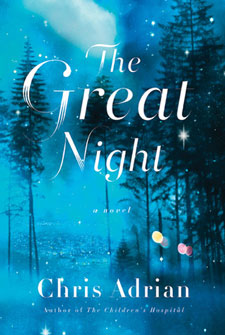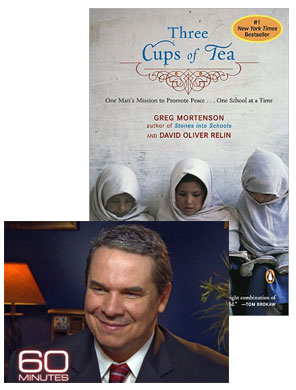Read This: The Great Night
 In my latest Shelf Awareness review, I tackle The Great Night, the new novel from Chris Adrian, which expands upon “A Tiny Feast,” his New Yorker short story about Oberon and Titania, the fairy king and queen, in the modern world, with a changeling boy being treated for leukemia. The novel begins a year or so after that story—their marriage has been torn apart by grief over the child’s death, and Puck has seized an opportunity to take revenge upon the entire fairy court, which in this day and age is located in the middle of San Francisco’s Buena Vista Park. You will not be surprised to learn that a small number of mortals get caught up in these events.
In my latest Shelf Awareness review, I tackle The Great Night, the new novel from Chris Adrian, which expands upon “A Tiny Feast,” his New Yorker short story about Oberon and Titania, the fairy king and queen, in the modern world, with a changeling boy being treated for leukemia. The novel begins a year or so after that story—their marriage has been torn apart by grief over the child’s death, and Puck has seized an opportunity to take revenge upon the entire fairy court, which in this day and age is located in the middle of San Francisco’s Buena Vista Park. You will not be surprised to learn that a small number of mortals get caught up in these events.
The plot’s structure is loosely borrowed from A Midsummer Night’s Dream, though Adrian uses Shakespeare less as a template than as a springboard. About the most “faithful” transposition is the Bottom subplot, re-imagined as a troupe of homeless men and women who are corralled by their leader, Huff, into performing a musical version of Soylent Green. (Huff is acutely paranoid, and has his reasons for believing this is political theater.) Otherwise, Adrian spins the story in directions of his own choosing—leaving several clues to the subtle connections between his three primary human characters. I read The Great Night through the prism of literary fantasy, and in that frame of mind I quite enjoyed it: A bit slow in spots, and anticlimactic, but still quite a good story.
19 April 2011 | read this |
Greg Mortenson: Not a Publishing Scandal
 About a month ago, I was checking out one of the display tables at a local Borders when I discovered that Greg Mortenson’s two books about building schools for impoverished communities in Pakistan and Afghanistan, the bestselling Three Cups of Tea and its follow-up, Stones into Schools, were available in a “buy one, get one 50% off” promotion. I’d been meaning to read them for a while, for an essay I’ve had in mind, so I picked them up, but I’ve been working on other projects, and I still hadn’t read them when, last Friday afternoon, I saw a story in Jacket Copy, the LA Times book blog, about a 60 Minutes investigation into Mortenson and his non-profit organization, the Central Asia Institute.
About a month ago, I was checking out one of the display tables at a local Borders when I discovered that Greg Mortenson’s two books about building schools for impoverished communities in Pakistan and Afghanistan, the bestselling Three Cups of Tea and its follow-up, Stones into Schools, were available in a “buy one, get one 50% off” promotion. I’d been meaning to read them for a while, for an essay I’ve had in mind, so I picked them up, but I’ve been working on other projects, and I still hadn’t read them when, last Friday afternoon, I saw a story in Jacket Copy, the LA Times book blog, about a 60 Minutes investigation into Mortenson and his non-profit organization, the Central Asia Institute.
The case against Mortenson is twofold: One, that he seriously distorted key elements of his life story to boost its inspirational qualities; two, that his charitable foundation spends a lot more money promoting Greg Mortenson than it does building schools in Central Asia. I’ve been through a couple of these “fake memoir” scandals before, so I spent some time yesterday afternoon talking with The Daily Beast about how this might affect the publishing industry. I didn’t wind up in the final cut of that story, but I can give you my short answer: Probably not very much, really. The 60 Minutes segment was primarily concerned with Mortenson’s alleged lies, and had nothing meaningful to say about the role of Viking and Penguin in disseminating those alleged lies as his publishers. That’s fine: They undoubtedly believed in the commercial potential of Mortenson’s inspirational story, and wanted it to be as true as it was presented to them as being, and had little reason to doubt it was true. So, with any luck, we’ve been spared the ritual hand-wringing about what is to be done about the fake memoirs this time around.
And, yet, it’s not as if there weren’t any signs this day might come…
18 April 2011 | uncategorized |

 Our Endless and Proper Work is my new book with Belt Publishing about starting (and sticking to) a productive writing practice.
Our Endless and Proper Work is my new book with Belt Publishing about starting (and sticking to) a productive writing practice. 
